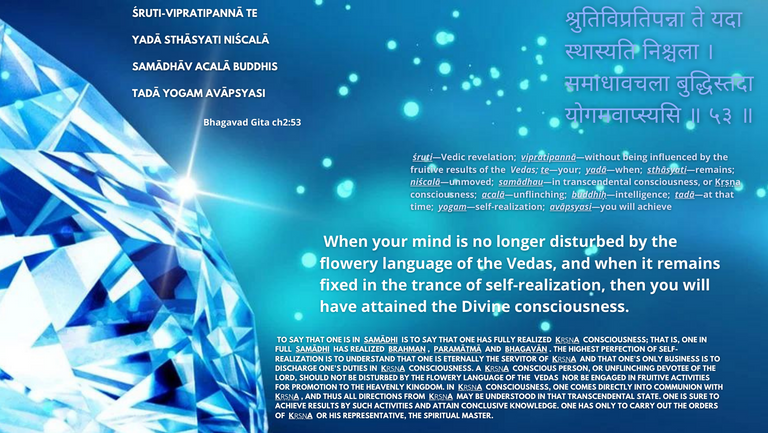The longer you play the game, the better you get at it. The longer you play the market, the more you profit. The long game is worth the effort, despite occasional downtrends. Sometimes those downtrends last years, but they bounce back cyclically. When you’re in it for the long game you’re called a “hodler”. You ride out the small allure of short term profit for long term gain. It’s just as world top investment broker, Warren Buffet, said how money flows from the impatient to the patient.

Sometimes the allure of short term gratification is dangled in front of us. That said, lock-ups and liquidity pools which are like fixed deposits can also be alluring, so we know what it means to put our energy to work for us and commit to long term fixed investment savings. Staking and yield farming works for the savvy investor.
And the same concept applies on the path of life, including the ultimate journey toward liberation. There are stories of how the monk was deep in meditation and yet was still swept into distraction by the allure of some beautiful woman. The Buddha himself was tempted just before enlightenment. Maya has a great allure for us all in the material world.
But it gets more subtle than that. On the path to enlightenment, there are passages in the Vedas that allow for aiming toward temporary material rewards. And these rewards are sometimes more than riches and jewels. The flowery allure of some books in the Vedas offer opportunities to propitiate the right god for certain blessings, and some of those are mystical. There are several mystic siddhis or perfections which a yogi can apparently acquire by meditating well for enough time to learn the art.
Yet the long term strategist is not misled by any such temporary short term profits. Samadhi should not be so easily shaken. The goal of yoga is union with the divine, in a sense of meeting god face to face. A marriage of soul and supersoul, two beings linked up in relationship, whether of love, friendship or servitude.
Yet great and advanced yogis have taken the short term profits resulting in distraction from the original goal. One has to be unmoved or resolute, by keeping the goal in mind. It’s easy now because the allure to take profit is not that great. The bull market has not really started and profits are slim. There is still many doubling of price to come, if past patterns are to be projected forward and followed. So long term hodling can take years.
For the yogi on the path of union, it can also take a lifetime, and the distractions or temptations along the way will be many, so a resolute determination is crucial. Only the few genuine aspirants make it, as one by one the weaker ones fall out off the path, distracted by temporary allures. Mature values and being able to see the true value of an asset or venture is crucial when dealing in real gems. And that is built from knowledge and experience.
When you are looking for real diamonds, then crystals may shine brightly but they are not as strong and enduring. A few diamonds are all it takes to make a big impact when you have top quality. The real treasure awaits the sincere seeker. Knowing this is enough to make the diamond hands and heart so much stronger.
Bhagavad Gita ch2:53
श्रुतिविप्रतिपन्ना ते यदा स्थास्यति निश्चला ।
समाधावचला बुद्धिस्तदा योगमवाप्स्यसि ॥ ५३ ॥
śruti-vipratipannā te
yadā sthāsyati niścalā
samādhāv acalā buddhis
tadā yogam avāpsyasi
śruti—Vedic revelation; vipratipannā—without being influenced by the fruitive results of the Vedas; te—your; yadā—when; sthāsyati—remains; niścalā—unmoved; samādhau—in transcendental consciousness, or Kṛṣṇa consciousness; acalā—unflinching; buddhiḥ—intelligence; tadā—at that time; yogam—self-realization; avāpsyasi—you will achieve
TRANSLATION
When your mind is no longer disturbed by the flowery language of the Vedas, and when it remains fixed in the trance of self-realization, then you will have attained the Divine consciousness.
COMMENTARY
To say that one is in samādhi is to say that one has fully realized Kṛṣṇa consciousness; that is, one in full samādhi has realized Brahman, Paramātmā and Bhagavān. The highest perfection of self-realization is to understand that one is eternally the servitor of Kṛṣṇa and that one's only business is to discharge one's duties in Kṛṣṇa consciousness. A Kṛṣṇa conscious person, or unflinching devotee of the Lord, should not be disturbed by the flowery language of the Vedas nor be engaged in fruitive activities for promotion to the heavenly kingdom. In Kṛṣṇa consciousness, one comes directly into communion with Kṛṣṇa, and thus all directions from Kṛṣṇa may be understood in that transcendental state. One is sure to achieve results by such activities and attain conclusive knowledge. One has only to carry out the orders of Kṛṣṇa or His representative, the spiritual master.
Reference: Bhagavad Gita As It Is, translation and commentary by Swami A. C. Bhaktivedanta, original 1972 Macmillan edition (www.prabhupadabooks.com)
Image: created by me using Pixabay free image and Canva